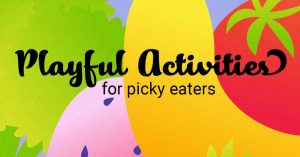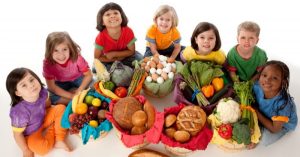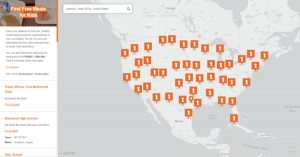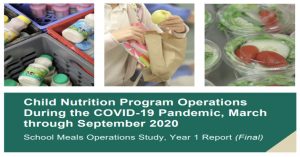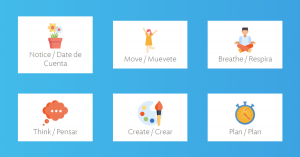Posts Tagged ‘child nutrition’
Creating Variety and Flavor with Seasonal Produce
Have you ever eaten a fresh apple or a peach right off a tree? If so, you know seasonal produce is fresh and tastes delicious, making children more likely to eat it. In addition to great taste, buying seasonal products also helps sustain the local economy.
Read MorePlayful Activities for Picky Eaters
As a way to help parents and caregivers provide fruits, vegetables, and healthy drinks every day, the CDC Foundation has produced a series of playful activities for use during meal and snack time.
Read MoreHealthy Iron Intake
Our bodies only need a small amount of iron, but without it, a child can appear pale in color; suffer from frequent headaches; or feel cranky, tired, and weak. Our partners at ICN review good sources of iron and how the CACFP Meal Pattern supports a healthy intake of iron.
Read MoreShare Your CACFP Experience in this Nationwide Survey
Participate by July 14 in a nationwide survey of CACFP Sponsors and Providers being conducted by the Harvard T.H. Chan School of Public Health.
Read MoreNCA Support as Covid-19 Flexibilities Come to an End
NCA understands that the end of flexibilities will cause challenges for many CACFP sponsors and providers and we commend your continued commitment to providing nutritious meals and snacks to the children or adults in your care. In preparation for the end of the additional reimbursement, we have collected the following resources to help you successfully provide meals even if your available budget decreases.
Read MoreBest Practices for Streamlining Applications for Year-Round Program Operations
This memorandum provides best practices for establishing a single application process for experienced program operators providing year-round meal services to at-risk children in low-income areas. This memorandum applies to State administering agencies and local organizations operating both the Summer Food Service and Child and Adult Care Food Programs.
Read MoreFree Meal Finder
Ensuring that children have access to nutritious meals is the top priority for the CACFP community. However, some children may still be missing out on meals, whether it’s on the weekend, during child care closures, or simply for their third full meal of the day. That’s why our partners at No Kid Hungry have developed a Free Meal Finder Map.
Read MoreInitial Guidance for State Implementation of Summer EBT in 2024
The Consolidated Appropriations Act, 2023 authorized a permanent, nationwide Summer Electronic Benefit Transfer (Summer EBT) Program beginning in 2024. The USDA released a memorandum providing information to assist States and territories in preparing to implement Summer EBT in 2024.
Read MoreChild Nutrition Program Operations During the COVID-19 Pandemic
In May 2023, the USDA’s Food and Nutrition Service (FNS) published a report focused on Child Nutrition Program (CNP) operations during the first few months of the COVID-19 pandemic, March through September 2020, including information on the nationwide waivers that FNS approved for use during that period.
Read MoreMe Moments
Me Moments are practices students (and adults!) can use to address their needs at any moment in school and at home. Our partners at Alliance for a Healthier Generation have created a virtual hub of Me Moments you can use in classrooms, at day care, or in your home.
Read More

